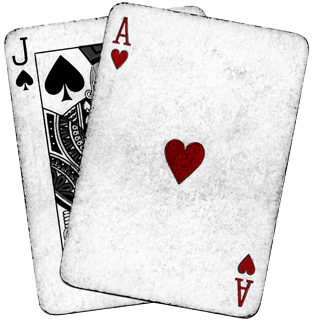A “Blue Moon” is the second full moon in a calendar month. It is rarely blue.
A bibliophile is a collector of rare books. A bibliopole is a seller of rare books.
A ghost writer pens an anonymous book.
A magic potion or charm thought to arouse sexual love, especially toward a specific person, is known as a “philter.”
A poem written to celebrate a wedding is called an epithalamium.
A speleologist studies caves.
Anagrams amused the ancient Greeks, Romans and Hebrews, and were popular during the Middle Ages.
“Aromatherapy” is a term coined by French chemist René Maurice Gattefossé in the 1920’s to describe the practice of using essential oils taken from plants, flowers, roots, seeds, etc., in healing.
Ballistics is the science that deals with the motion of projectiles.
Cannibalism, eating human flesh, is also called anthropophagy.
DNA stands for Deoxyribonucleicacid.
In 1945 a computer at Harvard malfunctioned and Grace Hopper, who was working on the computer, investigated, found a moth in one of the circuits and removed it. Ever since, when something goes wrong with a computer, it is said to have a bug in it.
In the 19th century, craftsmen who made hats were known to be excitable and irrational, as well as to tremble with palsy and mix up their words. Such behavior gave rise to the familiar expression “mad as a hatter”. The disorder, called hatter’s shakes, was caused by chronic mercury poisoning from the solution used to treat the felt. Attacking the central nervous system, the toxin led to behavioral symptoms.
In the Middle Ages, young men and women drew names from a bowl to see who their valentines would be. They would wear these names on their sleeves for one week. To wear your heart on your sleeve now means that it is easy for other people to know how you are feeling.
“Kemo Sabe” means “soggy shrub” in Navajo.
“Long in the tooth,” meaning “old,” was originally used to describe horses. As horses age, their gums recede, giving the impression that their teeth are growing. The longer the teeth look, the older the horse.
No word in the English language rhymes with month, orange, silver, and purple.
Oddly, no term existed for “homosexuality” in ancient Greece – there were only a variety of expressions referring to specific homosexual roles. Experts find this baffling, as the old Greek culture regarded male/male love in the highest regard. According to several linguists, the word “homosexual” was not coined until 1869 by the Hungarian physician Karoly Maria Benkert.
Of all the words in the English language, the word “set” has the most definitions.
“Ough” can be pronounced in eight different ways. The following sentence contains them all: “A rough-coated, dough-faced ploughman strode through the streets of Scarborough, coughing and hiccoughing thoughtfully.
Poor whites in Florida and Georgia are called “crackers.” They got the name from their principal staple food, cracked corn. Another theory states that the name comes from the days when they would drive cattle southward using the “crack” of their bullwhips to keep the animals in line and moving.
“Rhythms” is the longest English word without the normal vowels, a, e, i, o, or u.
“Second string,” meaning “replacement or backup,” comes from the middle ages. An archer always carried a second string in case the one on his bow broke.
The “O” when used as a prefix in Irish surnames means “descendant of.”
The “y” in signs reading “ye olde..” is properly pronounced with a “th” sound, not “y”. The “th” sound does not exist in Latin, so ancient Roman occupied (present day) England used the rune “thorn” to represent “th” sounds. With the advent of the printing press the character from the Roman alphabet which closest resembled thorn was the lower case “y”.
The ancient Romans built such an excellent system of roads that the saying arose “all roads lead to Rome,” that is, no matter which road one starts a journey on, he will finally reach Rome if he keeps on traveling. The popular saying came to mean that all ways or methods of doing something end in the same result, no method being better than another.
The correct response to the Irish greeting, “Top of the morning to you,” is “and the rest of the day to yourself.”
The expletive, “Holy Toledo,” refers to Toledo, Spain, which became an outstanding Christian cultural center in 1085.
The idiom “pillar of salt” means to have a stroke, or to become paralyzed and dead.
The last thing to happen is the ultimate. The next-to-last is the penultimate, and the second-to-last is the antepenultimate.
The phrase “raining cats and dogs” originated in 17th Century England. During heavy downpours of rain, many of these poor animals unfortunately drowned and their bodies would be seen floating in the rain torrents that raced through the streets. The situation gave the appearance that it had literally rained “cats and dogs” and led to the current expression.
The phrase “sleep tight” originated when mattresses were set upon ropes woven through the bed frame. To remedy sagging ropes, one would use a bed key to tighten the rope.
The phrase “rule of thumb” is derived from an old English law which stated that you couldn’t beat your wife with anything wider than your thumb. Actually, that’s a piece of folk etymology. The phrase refers to the use of rough and ready practical experience rather than formal procedures in getting something done. It’s most likely that the saying comes from carpenters using the length of the first joint of the thumb, which is about an inch long, to measure things. So “rule” refers to a ruler in the sense of measurement, not of despotism or male chauvinism. Other parts of the body were used as a ruler, too. A foot was determined by a pace, the distance from the tip of the nose to the outstretched fingers is roughly a yard, and horse heights are still measured by hands—the width of the palm and closed thumb is about four inches.
The plastic things on the end of shoelaces are called aglets.
The ridges on the sides of coins are called reeding or milling.
The right side of a boat was called the starboard side due to the fact that the astronavigators used to stand out on the plank (which was on the right side) to get an unobstructed view of the stars. The left side was called the port side because that was the side that you put in on at the port.
The side of a hammer is a cheek.
The study of insects is called entomology.
The study of word origins is called etymology.
The symbol on the “pound” key (#) is called an octothorpe.
The term “devil’s advocate” comes from the Roman Catholic Church. When deciding if someone should be sainted, a devil’s advocate is always appointed to give an alternative view.
The term “dog days” has nothing to do with dogs. It dates back to Roman times, when it was believed that Sirius, the Dog Star, added its heat to that of the sun from July3 to August 11, creating exceptionally high temperatures. The Romans called the period dies caniculares, or “days of the dog.”
The term “honeymoon” is derived from the Babylonians who declared mead, a honey-flavored wine, the official wedding drink, stipulating that the bride’s parents be required to keep the groom supplied with the drink for the month following the wedding.
The term “throw one’s hat in the ring” comes from boxing, where throwing a hat into the ring once signified a challenge. Today it nearly always signifies political candidacy.
The term “the whole 9 yards” came from W.W.II fighter pilots in the South Pacific. When arming their airplanes on the ground, the .50 caliber machine gun ammo belts measured exactly 27 feet, before being loaded into the fuselage. If the pilots fired all their ammo at a target, it got “the whole 9 yards.”
The term, “It’s all fun and games until someone loses an eye” is from Ancient Rome. The only rule during wrestling matches was, “No eye gouging.” Everything else was allowed, but the only way to be disqualified is to poke someone’s eye out.
The two lines that connect your top lip to the bottom of your nose are known as the philtrum.
The white part of your fingernail is called the lunula.
The word “homosexual” was not coined until 1869 by the Hungarian physician Karoly Maria Benkert.
The word “honcho” comes from a Japanese word meaning “squad leader” and first came into usage in the English language during the American occupation of Japan following World War II.
The word “set” has the highest number of separate definitions in the English Language (192 definitions according to the Oxford English Dictionary.)
The word “assassination” was invented by Shakespeare.
The word “coach” is derived from the village of Kocs, Hungary, where coaches were invented and first used.
The word “karate” means “empty hand.”
The word “samba” means “to rub navels together.”
The word gargoyle comes down from the Old French: gargouille, meaning throat or gullet. This is also the origin of the word gargle. The word describes the sound produced as water passes the throat and mixes with air. In early architecture, gargoyles were decorative creatures on the drains of cathedrals.
The word ‘news’ did not come about because it was the plural of ‘new.’ It came from the first letters of the words North, East, West and South. This was because information was being gathered from all different directions.
The word quisling comes from the name of Major Vidkun Quisling, a Norwegian who collaborated with the Germans during their occupation of Norway. The word now means “traitor.”
The world’s largest alphabet is Cambodian, with 74 letters.
The ZIP in Zip-code stands for “Zoning Improvement Plan.”
Theodore Roosevelt was the only U.S. president to deliver an inaugural address without using the word “I”. Abraham Lincoln, Franklin D. Roosevelt and Dwight D. Eisenhower tied for second place, using “I” only once in their inaugural addresses.
There are roughly 6,500 spoken languages in the world today. However, about 2,000 of those languages have fewer than 1,000 speakers. The most widely spoken language in the world is Mandarin Chinese. There are 885,000,000 people in China that speak that language.
Victor Hugo’s Les Miserables contains one of the longest sentences in the French language – 823 words without a period











